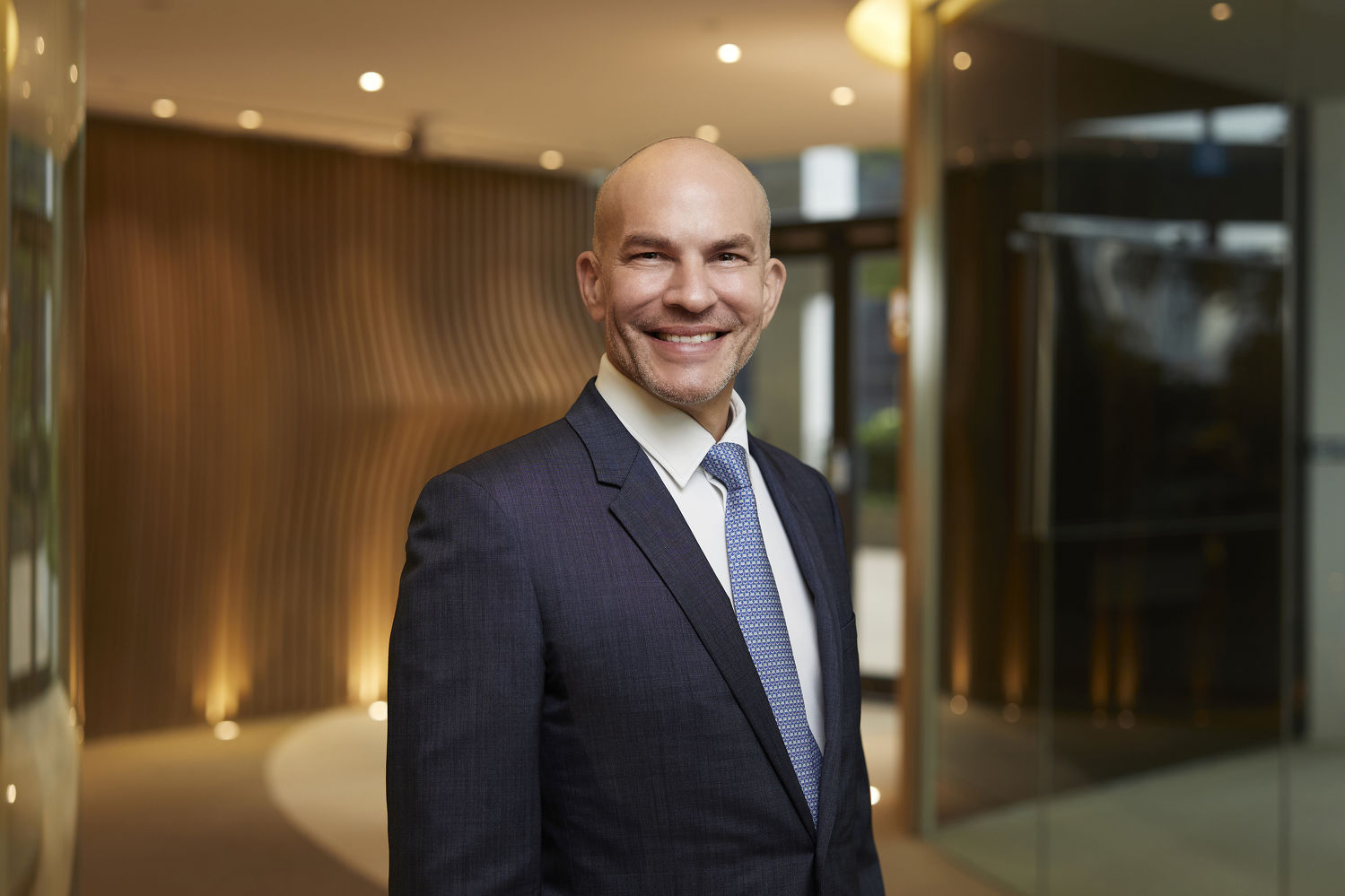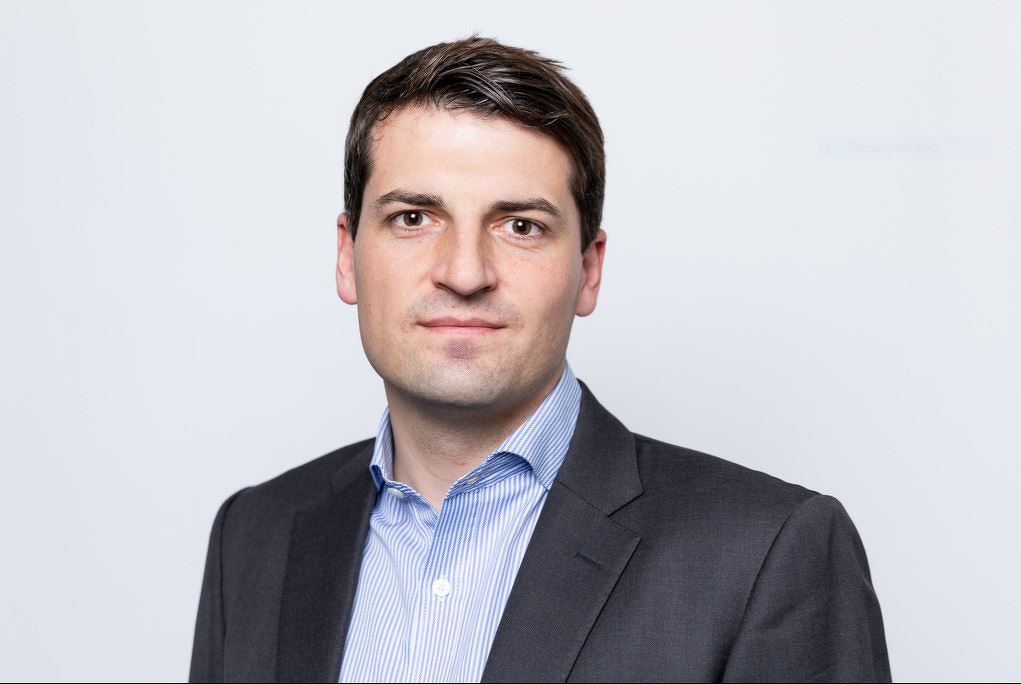Evrard Bordier, a fifth-generation member of the family who founded the bank Bordier & Cie. Photo: Bordier & Cie “What keeps me awake at night is the fear that we will fail to recognise the change in the industry,” says Bordier, a fifth-generation member of the family who founded the bank. “I need to make sure that we don’t miss out on the next curve, and crypto is a part of it.” Private wealth clients Bordier’s CEO notes a significant rise in awareness and comprehension of cryptocurrencies and digital assets among private wealth clients in recent years. Nearly half of Bordier’s clientele, mainly from Asia — Singapore, Malaysia, Thailand, Indonesia and Greater China — represents a blend of generational and new wealth. During the cryptocurrency boom of 2020 and 2021, he noticed a growing interest from individuals who included cryptocurrencies in their wealth portfolios. The decision to partner with Sygnum, recognised as a regulated banking entity by Swiss authorities, positioned the private bank favourably. Offering digital assets as part of its suite of services has increased the private bank’s visibility among a new, untapped client base, especially the younger generation who find digital assets trendy. “If you have that offering in place, it’s an add-on to your existing portfolio of private banking services; suddenly, the next generation [of high net worth clients] start to get interested in meeting,” Bordier says. “Then existing clients begin to get more involved as well.” He adds that this further secures the share of the wallet of families and individuals over the medium to long term. However, Bordier maintains that digital assets will not be a major part of their client’s portfolio. Instead, such products sit in its suite of offerings as a means for its investors to slowly understand the asset class. Bordier & Cie employs a long-term legacy planning strategy for its clients, in which market down rounds like the present crypto winter are “irrelevant”. “We’re looking at 10, 20 years down the road, where the market will evolve, become better regulated,” adds Bordier. “The clients who came in didn’t do so because they wanted to get rich quick, but to understand how the new technology works.” Likewise, Sygnum — which serves accredited investors and family offices alike — notes that its clients do not trade in and out daily to make a quick buck. Many think long-term and are much less exposed to the “fear of missing out” trading patterns that the retail class is vulnerable to, Imbach says.
Imbach: Sygnum’s growth has been as strong as ever before, now that people start to think through counterparty risks much more thoroughly. Photo: Sygnum Ironically, the aftermath of cryptocurrency exchange FTX and other significant cryptocurrency scandals that unravelled in the last two years has spurred a call for tougher regulations in the industry, ultimately benefiting Sygnum. Imbach and his team, who had taken a stringent approach to regulating his services from the beginning, are now starting to see his efforts pay off. “Sygnum’s growth has been as strong as ever before, now that people start to think through counterparty risks much more thoroughly,” he says. “Nobody wants to be involved in a Chapter 11 proceeding, but rather wants to keep their crypto assets with a bank where they are held off balance sheet and as a result, bankruptcy remote.” Plenty of rewards Sygnum is not the sole provider of digital asset services. In recent years, several entities in the financial services industry have launched initiatives related to digital asset services for both institutional and accredited investors. Bordier & Cie’s decision to collaborate with Sygnum stems from their all-in-one-account approach. The digital asset bank can offer a comprehensive suite of services, handling everything from trading infrastructure to compliance, risk management and research for asset management products. Imbach says the company is supported by board members and advisors with extensive careers in traditional finance, a testament to their trust in Sygnum’s product. As Sygnum is regulated like a bank, it adheres to the same rigorous procedures for auditing, cybersecurity management and due diligence processes as any other banking entity. An event of a client’s assets disappearing overnight is an unlikely scenario to happen, as all of Sygnum’s customer’s assets are held off-balance sheet, which means they are not owned by or are a direct obligation of the company. Unlike in FTX, where clients were buying into assets owned by the exchange, Sygnum’s client’s assets are segregated entirely from the entity. This means if all customers were to withdraw their assets tomorrow, they would be able to do so. Bordier acknowledges that the venture comes with its risks. However, he sees avoiding exploring new technologies as an even riskier position. Drawing a parallel between the early stages of the digital asset ecosystem and the hedge fund industry in the 1960s, he emphasises that the two banks find themselves in an intriguing position. “We will begin to move from local regulatory clarity to much more pan-national and international qualifications of what works and what does not, and this will unleash a lot of potential in crypto and stablecoins,” says Imbach.
A unique yet strategic partnership has emerged at the annual Singapore Fintech Festival 2023, bringing together the 179-year-old private bank Bordier & Cie and the relatively young digital asset bank Sygnum, just six years old. Bordier & Cie is set to become Sygnum Singapore’s first B2B (business-to-business) client in this blend of tradition and innovation. This collaboration involves the platform offering digital asset services to the Swiss private bank and its clientele.
This means that the private banking clients of Bordier & Cie Singapore can trade cryptocurrencies.
Sygnum, which obtained its full major payment institution licence (MPI) from the Monetary Authority of Singapore (MAS) earlier last month, offers this entire value chain of digital assets to only accredited investors. Bordier & Cie has now started utilising the trading and custody infrastructure of Sygnum.
In an exclusive interview with The Edge Singapore, co-founder and CEO of Sygnum Mathias Imbach and Bordier & Cie Singapore’s CEO Evrard Bordier explained that the partnership had originally been initiated in both entities’ operations in Switzerland in January 2021.
The extension of its collaboration in Singapore now may invite some curiosities, especially during this ensuing crypto winter that began in 2022. What is the value of providing private wealth clients access to digital assets through Sygnum, and is there any demand?
The two men, who have known each other for many years, say the partnership “resonated” from the beginning. With more individuals holding cryptocurrencies, Bordier is taking a chance on the asset being part of their client’s wealth over time.
Sygnum and Bordier & Cie see their partnership in Singapore as the start of an enduring collaboration resilient to market fluctuations and economic cycles.
Evrard Bordier, a fifth-generation member of the family who founded the bank Bordier & Cie. Photo: Bordier & Cie
“What keeps me awake at night is the fear that we will fail to recognise the change in the industry,” says Bordier, a fifth-generation member of the family who founded the bank. “I need to make sure that we don’t miss out on the next curve, and crypto is a part of it.”
Private wealth clients
Bordier’s CEO notes a significant rise in awareness and comprehension of cryptocurrencies and digital assets among private wealth clients in recent years. Nearly half of Bordier’s clientele, mainly from Asia — Singapore, Malaysia, Thailand, Indonesia and Greater China — represents a blend of generational and new wealth.
During the cryptocurrency boom of 2020 and 2021, he noticed a growing interest from individuals who included cryptocurrencies in their wealth portfolios. The decision to partner with Sygnum, recognised as a regulated banking entity by Swiss authorities, positioned the private bank favourably.
Offering digital assets as part of its suite of services has increased the private bank’s visibility among a new, untapped client base, especially the younger generation who find digital assets trendy.
“If you have that offering in place, it’s an add-on to your existing portfolio of private banking services; suddenly, the next generation [of high net worth clients] start to get interested in meeting,” Bordier says. “Then existing clients begin to get more involved as well.”
He adds that this further secures the share of the wallet of families and individuals over the medium to long term. However, Bordier maintains that digital assets will not be a major part of their client’s portfolio. Instead, such products sit in its suite of offerings as a means for its investors to slowly understand the asset class. Bordier & Cie employs a long-term legacy planning strategy for its clients, in which market down rounds like the present crypto winter are “irrelevant”.
“We’re looking at 10, 20 years down the road, where the market will evolve, become better regulated,” adds Bordier. “The clients who came in didn’t do so because they wanted to get rich quick, but to understand how the new technology works.”
Likewise, Sygnum — which serves accredited investors and family offices alike — notes that its clients do not trade in and out daily to make a quick buck. Many think long-term and are much less exposed to the “fear of missing out” trading patterns that the retail class is vulnerable to, Imbach says.
Imbach: Sygnum’s growth has been as strong as ever before, now that people start to think through counterparty risks much more thoroughly. Photo: Sygnum
Ironically, the aftermath of cryptocurrency exchange FTX and other significant cryptocurrency scandals that unravelled in the last two years has spurred a call for tougher regulations in the industry, ultimately benefiting Sygnum.
Imbach and his team, who had taken a stringent approach to regulating his services from the beginning, are now starting to see his efforts pay off. “Sygnum’s growth has been as strong as ever before, now that people start to think through counterparty risks much more thoroughly,” he says. “Nobody wants to be involved in a Chapter 11 proceeding, but rather wants to keep their crypto assets with a bank where they are held off balance sheet and as a result, bankruptcy remote.”
Plenty of rewards
Sygnum is not the sole provider of digital asset services. In recent years, several entities in the financial services industry have launched initiatives related to digital asset services for both institutional and accredited investors.
Bordier & Cie’s decision to collaborate with Sygnum stems from their all-in-one-account approach. The digital asset bank can offer a comprehensive suite of services, handling everything from trading infrastructure to compliance, risk management and research for asset management products.
Imbach says the company is supported by board members and advisors with extensive careers in traditional finance, a testament to their trust in Sygnum’s product. As Sygnum is regulated like a bank, it adheres to the same rigorous procedures for auditing, cybersecurity management and due diligence processes as any other banking entity.
An event of a client’s assets disappearing overnight is an unlikely scenario to happen, as all of Sygnum’s customer’s assets are held off-balance sheet, which means they are not owned by or are a direct obligation of the company.
Unlike in FTX, where clients were buying into assets owned by the exchange, Sygnum’s client’s assets are segregated entirely from the entity. This means if all customers were to withdraw their assets tomorrow, they would be able to do so.
Bordier acknowledges that the venture comes with its risks. However, he sees avoiding exploring new technologies as an even riskier position. Drawing a parallel between the early stages of the digital asset ecosystem and the hedge fund industry in the 1960s, he emphasises that the two banks find themselves in an intriguing position.
“We will begin to move from local regulatory clarity to much more pan-national and international qualifications of what works and what does not, and this will unleash a lot of potential in crypto and stablecoins,” says Imbach.




